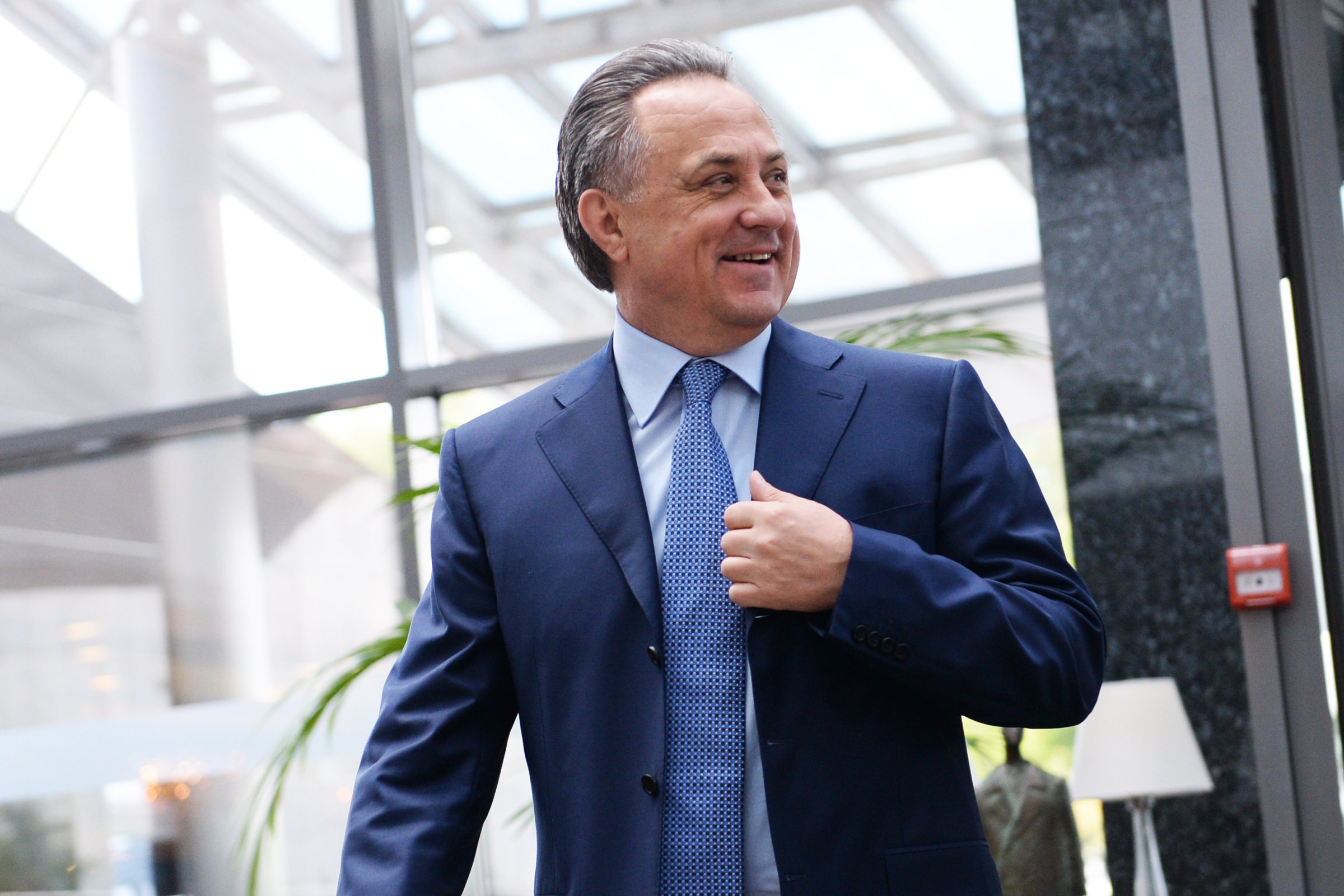
Russia has cleaned up its act ahead of a decision by the international anti-doping body next month on whether to lift a ban on Russian track and field athletes in time for the Rio Olympics, the Russian Sports Minister said Tuesday.
“I don’t see any strong reason to keep our sportsmen from competing in the Olympic Games,” Vitaly Mutko told reporters at the palatial Ministry of Sports in central Moscow.
“I believe the punishment for doping should always be applied at an individual level.”
The World Anti-Doping Agency (WADA) is set to rule on whether to prolong a suspension on Russian track and field athletes in less than a month.
Mutko seemed eager to prove that Russian sport had turned over a new leaf. He said “serious work” had been carried out, citing the presence of international observers at Russia’s anti-doping agency RUSADA and a rigorous staff overhaul at the Russian Athletics Federation.
“Not a single person who previously worked at the [athletics] federation still works there,” he said.
He also said that Russia was working on a new law that would make doping a criminal offense. Russia’s athletics federation will not allow athletes who have been caught using banned substances in recent years to compete at the upcoming Olympics in Brazil should WADA lift the ban, Mutko added.
The minister showed no sign, however, of edging closer to admitting allegations made in the November report by WADA and a whistleblower top anti-doping official in a recent article in The New York Times. Both reports detailed high-level involvement in what they claimed was a state-sponsored doping program ahead of the Sochi Games.
“The Russian government’s role is simple,” Mutko said defiantly. “It’s doing everything to keep sport clean.”
In the article, the head of Russia’s anti-doping laboratory at the time of the Sochi Winter Games, Grigory Rodchenkov, repeated previous claims by WADA that members of the Federal Security Service (FSB) had colluded in a doping cover-up scheme.
But Mutko told TIME that he had no knowledge of any FSB presence at doping labs in Moscow or Sochi. “I wasn’t there to see what was going on,” he said. “We have to investigate those claims.” He said both Russian prosecutors and WADA were conducting investigations.
Mutko emphasized that Russia should not be singled out by the international sports community.
“The IAAF and the Russian athletics federation have to get through this crisis together. We’re a sports family,” he said. “It’s like when you have two sons, one of whom is a drug addict. Shunning him won’t make him less of an addict.”
Mutko was speaking as the Russian Olympic Committee said in an online statement that 14 Russian athletes had tested positive for banned substances in samples taken eight years ago at the Bejing Olympics. While the statement did not include any names, two-time Olympic medalist Anna Chicherova is on the list, her coach told Russian media on Tuesday.
Mutko warned against making hasty assumptions. “A person accused of violating doping rules can only be found guilty after a disciplinary hearing,” he said.
“We’re really flattered that so much attention is being given to Russia,” he said, in a rare show of humor. But, he added, the International Olympic Committee had also found breaches by athletes in 11 other countries.
In a later online statement, the Russian Sports Ministry said it was “extremely disappointed” by the report, adding “any athletes found cheating should face corresponding sanctions.”
More Must-Reads From TIME
- The 100 Most Influential People of 2024
- Coco Gauff Is Playing for Herself Now
- Scenes From Pro-Palestinian Encampments Across U.S. Universities
- 6 Compliments That Land Every Time
- If You're Dating Right Now , You're Brave: Column
- The AI That Could Heal a Divided Internet
- Fallout Is a Brilliant Model for the Future of Video Game Adaptations
- Want Weekly Recs on What to Watch, Read, and More? Sign Up for Worth Your Time
Contact us at letters@time.com